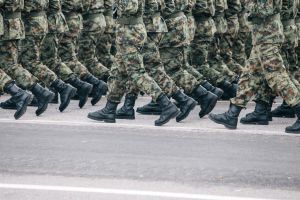Russian Nuclear Submarines to Expand Patrols to Southern Latitudes; Western Nations on Guard
Reports from Russia indicate that the country's military is set to deploy nuclear submarines to the world's southern seas next year, marking the first time in more than two decades that Russian ships will patrol the southern latitudes, according to Russian media.
A source at the General Staff of the Armed Forces revealed the plans for expanded patrols by Russian submarines to ITAR-Tass on Saturday. The source explained the expanded range for the nuclear boats will help as a strategic nuclear deterrent given the subs will be of the new Borey class.
Russia's former chief of naval staff, Adm. Viktor Kravchenko, said if it became necessary to launch missiles across the South Pole it would be "technically possible" to do so.
The news of the expanded Russian patrols comes less than a year after Russian submarine entered U.S. waters undetected and patrolled the Gulf coast for several weeks.
The Russian Akula-class nuclear attack submarine ventured undetected in the Gulf of Mexico and was able to operate for weeks before being discovered only after it had left the area. The incident raised concerns over gaps in U.S. patrols off American coasts, according to reports in The Washington Free Beacon, which cited unnamed sources.
This incident is the second time that a Russian submarine has sailed close to U.S. shores since 2009.
The realization that an armed military vehicle was able to get so close to U.S. shores sheds light on what have long been considered holes in the U.S. anti-submarine patrols, according to U.S. officials.
These same defense programs are being threatened with budget cuts under the Obama administration's plan to reduce spending on defense by more than $450 billion over the next decade.
Akula-class submarines, which were originally developed by the Soviet Union in the 1980s as a direct competitor to the U.S. Navy's nuclear Los Angeles-class submarines, are still the most advanced attack submarines that Russia has in its navy.





























